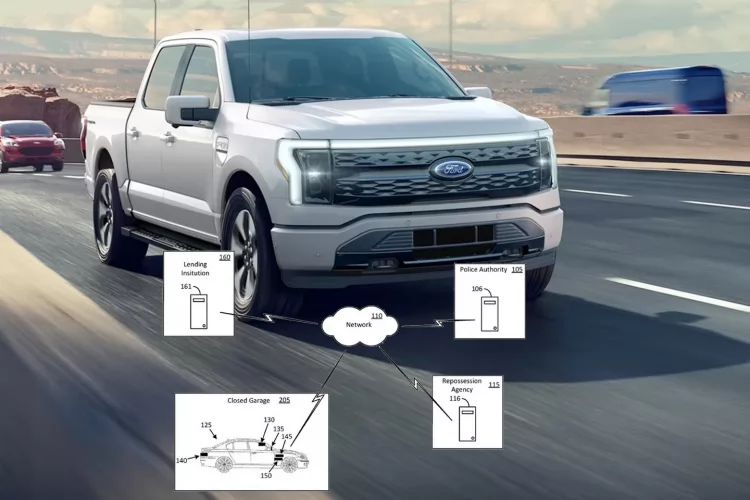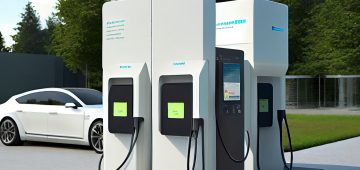It’s important to evaluate your driving needs as you consider whether a hybrid or full electric vehicle is the better choice for today’s driver. Hybrids offer the flexibility of gasoline engines combined with electric power, making them an excellent option for long trips without worrying about charging stations. On the other hand, full electric vehicles provide the benefits of lower emissions and reduced fuel costs, making them an attractive option for environmentally conscious drivers. This post will help you weigh the advantages and disadvantages of each to determine which aligns best with your lifestyle and preferences.
Key Takeaways:
- Fuel Efficiency: Hybrid vehicles typically offer better fuel efficiency than traditional gasoline cars, making them a cost-effective choice for many drivers.
- Range Anxiety: Full electric vehicles eliminate range anxiety for daily commutes with sufficient charging infrastructure; however, hybrids provide a backup option with gasoline, alleviating concerns on long trips.
- Environmental Impact: Full electric cars produce zero tailpipe emissions, whereas hybrids offer a balanced approach, reducing emissions while providing flexibility in fuel use.
Understanding Hybrid Vehicles
To help you navigate the dynamic landscape of automobile technology, it’s important to first understand what hybrid vehicles are. A hybrid vehicle combines conventional internal combustion engine systems with an electric propulsion system. This combination allows the vehicle to operate on either gasoline or electricity, offering you greater flexibility in fuel sources. There are several types of hybrids, including full hybrids, mild hybrids, and plug-in hybrids. You can learn more about the Electric vs. Hybrid Cars: Pros and Cons of Each for deeper insights into how these systems function and their implications for modern driving.
Definition and Types of Hybrids
Definition of hybrid vehicles varies by their operational modalities and energy sources. Here is a breakdown illustrating the type of hybrids available today:
| Type of Hybrid | Description |
| Full Hybrid | Can operate on the gasoline engine, electric motor, or both. |
| Mild Hybrid | Utilizes an electric motor to assist the gasoline engine but cannot drive on electric power alone. |
| Plug-in Hybrid | Features a larger battery, allowing for extended electric-only driving before switching to gasoline combustion. |
| Series Hybrid | Electric motor is the primary source of propulsion, with the gasoline engine acting solely as a generator. |
Any hybrid vehicle offers varied advantages that cater to different driving needs.
Key Features and Benefits
Any advantages that hybrid vehicles provide can significantly enhance your driving experience. Some of the key features and benefits include:
- Improved Fuel Efficiency: Typically, hybrids offer better miles per gallon compared to traditional gasoline vehicles.
- Lower Emissions: Hybrid vehicles produce fewer harmful emissions, contributing to a more sustainable environment.
- Reduced Reliance on Gasoline: The combination of electric and gasoline power allows for less frequent refueling.
- Regenerative Braking: This feature captures energy that would otherwise be lost during braking, recharging the electric battery.
- Government Incentives: You may qualify for tax breaks or rebates when purchasing a hybrid vehicle.
It’s crucial for you to weigh the benefits against your particular driving habits. Any hybrid vehicle can serve as an effective solution for reducing your overall fuel consumption while maintaining performance.
When examining the key features, you can also appreciate the significance of having a quiet driving experience, as hybrids often operate silently in electric-only mode. Additional features include:
- Driver Alerts: Many hybrids are equipped with technology that alerts you to assist in maximizing fuel efficiency.
- Hybrid-specific Technologies: Some models include unique displays that show real-time energy consumption and regeneration.
- Comfortable Interior: Most hybrids offer modern, spacious interiors with advanced infotainment systems for your enjoyment.
- All-Wheel Drive Options: Some hybrids offer AWD capabilities for improved traction and control in various weather conditions.
- Custom Driving Modes: Many hybrids allow you to choose between different modes, optimizing performance or fuel economy.
It’s advisable to assess these features thoroughly to ensure they align with your lifestyle and preferences.
Common Myths and Misconceptions
Definition of hybrids can often be clouded by many myths and misconceptions, which can mislead your decision-making process. Commonly, people think of hybrids as being underpowered vehicles. In reality, advancements in technology have allowed hybrids to perform exceptionally well, often on par with traditional cars.
Hybrids have also been assumed to be high-maintenance due to their dual systems; however, most hybrids maintain similar maintenance costs to conventional vehicles. Additionally, some may believe hybrids cannot efficiently function in extreme weather conditions. In actuality, many hybrids are designed with adaptability in mind, providing reliable performance across a range of environments.
Hybrids are often misunderstood vehicles. Understanding the truth helps you make a well-informed decision about your transportation needs. The perception that hybrids require special fuels or parts can also lead to inflated maintenance concerns, yet most hybrids run on standard gasoline and are serviceable at any auto shop. It’s paramount that you assess information carefully to guide your decision-making in choosing the right vehicle for your lifestyle.
Exploring Full Electric Vehicles
If you’re considering a switch to a full electric vehicle (EV), it’s important to understand what they entail and how they differ from traditional vehicles. Vehicles that fall under this category are powered entirely by electricity, utilizing a battery to operate the electric motor. This eliminates the need for gasoline and reduces greenhouse gas emissions, making them a more environmentally friendly option. However, there are various types of electric vehicles that you may encounter.
Definition and Types of Electric Vehicles
Vehicles powered by electricity can be broadly categorized into three main types:
| Type | Description |
| Battery Electric Vehicles (BEVs) | Runs solely on electricity stored in a battery; charges at home or charging stations. |
| Plug-in Hybrid Electric Vehicles (PHEVs) | Combines an electric motor and a traditional engine; can run on electricity or gasoline. |
| Hybrid Electric Vehicles (HEVs) | Mostly uses a gasoline engine but relies on an electric motor for additional power; cannot be charged externally. |
| Fuel Cell Electric Vehicles (FCEVs) | Uses hydrogen to generate electricity, releasing only water as a byproduct. |
Recognizing the distinctions between these vehicle types will help you to make an informed choice that aligns with your lifestyle and driving needs.
Advantages of Going Full Electric
Electric vehicles present numerous benefits that can significantly impact your driving experience. One of the most substantial advantages is lower operating costs. For instance, the overall cost to charge an electric vehicle is often less than refueling a gasoline vehicle, and they typically require less maintenance due to fewer moving parts. Additionally, many regions now offer incentives for drivers who choose electric, making it financially attractive.
Electric vehicles also promise a quieter ride and instant torque that provides faster acceleration compared to conventional vehicles. Moreover, numerous charging stations are becoming increasingly available, easing the concern about battery lifespan and range. Along with reduced fuel costs, they contribute to lowering your carbon footprint, helping you to make a positive environmental impact.
Electric vehicles importantly represent the future of transport. Their technological advancements continue to improve, addressing common consumer concerns like range anxiety and charging accessibility. So, if you’re considering an investment in an EV, the long-term savings and eco-friendly benefits are compelling reasons to make the switch.
Challenges and Limitations
Among the challenges you might face when switching to a full electric vehicle is the concern over charging infrastructure. While the number of charging stations is on the rise, they may not be as readily available as gas stations, particularly in rural areas. Additionally, charging times can vary—while a full charge may take as little as 30 minutes at a fast-charging station, many home situations necessitate overnight charging, which may not be convenient for all drivers.
Another limitation is the current range of electric vehicles. Although this has improved significantly over the years, some models still don’t adhere to the ranges provided by gasoline vehicles. Your daily driving habits will play a significant role in whether an electric vehicle meets your requirements.
Hence, while electric vehicles offer numerous benefits, it’s important to consider these limitations and assess whether they align with your lifestyle and driving patterns before making a switch.
Comparing Hybrid and Full Electric
Once again, the choice between hybrid and full electric (EV) vehicles comes down to understanding the unique features, benefits, and drawbacks of each option. Here’s a straightforward comparison to help you make an informed decision.
| Feature | Hybrid | Full Electric |
|---|---|---|
| Power Source | Combines a gasoline engine with an electric motor | Runs entirely on electricity |
| Range | Typically 400-600 miles on a full tank and charge | 100-300 miles, depending on battery capacity |
| Charging Infrastructure | Less dependence on charging stations due to gasoline engine | Requires access to charging stations |
| Fuel Efficiency | Varies but generally better than traditional gasoline vehicles | Zero emissions during driving |
| Maintenance | More components may lead to higher maintenance costs | Typically lower due to fewer moving parts |
Cost of Ownership Analysis
Any vehicle purchase is likely marked by one major factor: the cost of ownership. When you consider hybrids, you tend to benefit from lower upfront costs compared to full electric cars, making them more accessible for many buyers. Additionally, hybrids generally offer good fuel efficiency, which can save you money at the pump over time. However, it’s important to factor in potential maintenance costs that can arise from having both an electric motor and a gasoline engine.
On the other hand, full electric vehicles may have a higher initial purchase price, but the total cost of ownership can be more appealing in the long run. The savings on fuel, reduced maintenance, and even some incentives or rebates for EV purchases can make them a more cost-effective option, particularly if you drive frequently. You’ll need to evaluate your driving habits and how often you can charge to make an informed choice.
Environmental Impact
Environmental concerns are at the forefront of the decision-making process for many drivers today. Hybrid vehicles produce fewer emissions compared to conventional gasoline cars due to their reliance on electric power, but they still rely on gasoline to some extent. Full electric vehicles, in contrast, offer a significant reduction in emissions, as they run solely on electricity and produce no tailpipe emissions while driving.
Environmental impact is also influenced by the source of the electricity used to charge full electric vehicles. If your electricity comes from renewable resources, the positive impact is even greater. However, if your charging is primarily from fossil fuels, the environmental benefits may be less pronounced. Regulations related to battery production and disposal are also key considerations that can affect the overall environmental footprint.
For instance, some regions are promoting battery recycling initiatives to mitigate the environmental damage from discarded electric vehicle batteries. This growing focus on sustainability may further enhance the attractiveness of full electric vehicles as technology evolves to improve the sustainability of their batteries and systems.
Driving Experience and Performance
Among the factors influencing your choice is the driving experience and performance of each vehicle type. Hybrids offer the advantage of a gasoline engine for those long trips, providing immediate refueling and longer range without the need for extensive planning around charging stations. You may find that they perform well in various driving conditions, balancing power and efficiency.
Conversely, full electric vehicles can offer a unique driving experience characterized by smooth acceleration and quiet operation. The instant torque provided by electric motors often results in quicker start-offs and a dynamic driving feel. However, you might encounter range anxiety, especially if you frequently drive long distances or in areas with limited charging infrastructure.
It’s important to remember that both hybrids and full electric vehicles can offer you an enjoyable driving experience, but it’s the specific performance characteristics that will ultimately influence your preference. The choice you make should align with your individual driving needs and lifestyle.
Summing up
The choice between a hybrid and a full electric vehicle ultimately depends on your individual driving habits and lifestyle. If you frequently take long road trips and have concerns about charging infrastructure, a hybrid may offer the convenience and flexibility you need. With a hybrid, you have the benefit of a gasoline engine and greater range while still enjoying some of the advantages of electrification, such as improved fuel efficiency and lower emissions. However, if your daily driving consists of short commutes and you have access to charging stations, opting for a full electric vehicle can provide significant savings on fuel costs and maintenance, along with a greener footprint.
As you weigh your options, consider factors like initial cost, available incentives, and the driving experience you desire. Both hybrid and full electric vehicles come with unique benefits that can enhance your driving experience and support sustainability efforts. By analyzing your priorities and how each vehicle type aligns with your needs, you can make an informed decision that best suits your lifestyle and contributes positively to the environment.
FAQ
Q: What are the key differences between hybrid and full electric vehicles?
A: The primary difference lies in their powertrains. Hybrid vehicles combine an internal combustion engine with an electric motor, utilizing both fuel and electricity, which allows them to switch between power sources and enhances fuel efficiency. Full electric vehicles, on the other hand, are solely powered by electricity stored in batteries and do not use gasoline at all. This distinction leads to differences in range, charging infrastructure, and emissions, with full electric vehicles producing zero tailpipe emissions but requiring charging stations, while hybrids can refuel at standard gas stations.
Q: How does each option impact the environment?
A: Both hybrid and full electric vehicles are designed to reduce environmental impact compared to traditional gasoline-powered cars. Full electric vehicles contribute the least emissions during operation since they produce none at the tailpipe. However, their overall environmental impact also depends on how the electricity is generated (renewable vs. non-renewable sources). Hybrids reduce emissions by utilizing a combination of electric and gasoline power, but they still emit pollutants from their internal combustion engines. In choosing between the two, it is crucial to consider not only their operational emissions but also the entire lifecycle emissions associated with manufacturing, charging, and driving.
Q: What should drivers consider when making a choice between hybrid and full electric vehicles?
A: When deciding between hybrid and full electric vehicles, drivers should consider their driving habits, charging capabilities, and budget. For instance, if a driver frequently takes long trips or doesn’t have access to charging infrastructure, a hybrid may be more practical as it offers greater flexibility with its gasoline engine. Conversely, for those who primarily drive short distances and have access to charging outlets, a full electric vehicle could provide significant fuel savings and a lower environmental footprint. Additionally, potential incentives and rebates for electric vehicles, as well as long-term cost savings on fuel, maintenance, and tax credits, are also important factors to evaluate.



